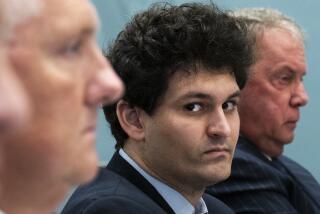The wealthy’s compassion deficit
We know that wealth does not always make people happy, but does it make them kinder? Studies suggest exactly the opposite. Instead of being more magnanimous, the rich are more likely to lie, cheat, steal and in general display less compassion than the poor. And this finding remains consistent even after controlling for gender, ethnicity and spiritual beliefs.
A large body of research point to a compassion deficit in the rich that plays out in big and small ways. As reported in Scientific American, for example, drivers of luxury cars cut others off at intersections at a much higher rate than those driving economy cars. Other studies have found that the wealthy are more likely to lie in negotiations and less likely to agree with statements such as “I often notice people who need help.” And during simulations in which participants could divide up candy, giving some to children and keeping some for themselves, wealthier participants consistently kept more for themselves and gave less to children.
Does all this mean, perhaps, that selfishness is part of what enables some people to prosper? No. Rather, research suggests that it is a result rather than a cause of financial success. Simply creating the feeling of wealth in someone can result in self-justification. UC sociologist Paul Piff demonstrated this with rigged Monopoly games in a study involving hundreds of students. One “wealthy” player began the game with twice as much money and got to roll two dice instead of one. But when the clearly advantaged player won, he or she was highly likely to attribute it to skill rather than to preset advantage.
At the University of Rotterdam, a series of studies found that people primed with reminders of money preferred to play and work alone, put more physical distance between themselves and new acquaintances, and were less helpful when they saw someone in need of assistance.
The reasons for this compassion gap are complex. Part of the explanation, Piff and fellow UC sociologist Dacher Keltner theorize, is that wealth allows people to be more independent. Those with considerable resources are less reliant on others and therefore feel less connected.
Most rich people rarely come into close contact with those in need. I recently asked a child in our school in Westwood if he knew anyone who ever went to bed hungry for lack of food. “No one,” he answered. I suspect that’s typical. Increasingly in America, wealth insulates us: Where once we sat on bleachers together, now the wealthy sit in box seats. They fly in private planes (or relax in exclusive clubs at the airport), live behind gates and in general maintain a buffer from those who are less fortunate. Studies suggest that actual personal distance in conversation grows with wealth as well.
A second theory that Piff and Keltner offer is that the wealthy are more likely to value greed as a social good — as a driver of the economy — and therefore to cut corners to make money. Ethics slide because making money is viewed as having social benefits as well as a personal ones.
As a rabbi, I see a spiritual explanation as well. We all know, deep down, that most of what we have is a product of good fortune. No matter how hard we work, we did not earn our functioning brains or the families into which we were born. We didn’t choose being born into an era, or a nation, that allowed our talents to develop. We ride in cars and live in homes we did not build, are warmed by heating and cooled by air conditioning we did not invent, live in cities others created for us organized by a government and protected by a military shaped by our predecessors. Yet we still point to our accomplishments and proudly proclaim, “I did this!”
No one likes to feel that what they have achieved stems more from luck than merit. So the well-off salve their consciences by assuring themselves that it is hard work and merit that brought them success, which also leads them to conclude that it is a lack of merit that keeps others from succeeding.
No one denies that working hard is likelier to pay off than indolence and that extraordinary efforts should be applauded. But we who are doing well financially should also acknowledge our great good fortune and work to nurture our compassion. One of the glorious paradoxes of psychology is that once we understand our natural tendencies, we can successfully fight them. I am privileged to know some very wealthy people who are paragons of generosity and empathy.
There are ways to increase compassion — volunteering at a soup kitchen, traveling to poorer countries, giving more money than you are comfortable with because you know that in a year or two it will not matter to you but will to the person or organization to which you donated.
Being lucky shouldn’t be cause for guilt, but it should engender gratitude and responsibility. Blessings are more powerful and enduring when shared.
David Wolpe is the rabbi of Sinai Temple in Los Angeles. Twitter: @RabbiWolpe
More to Read
A cure for the common opinion
Get thought-provoking perspectives with our weekly newsletter.
You may occasionally receive promotional content from the Los Angeles Times.










